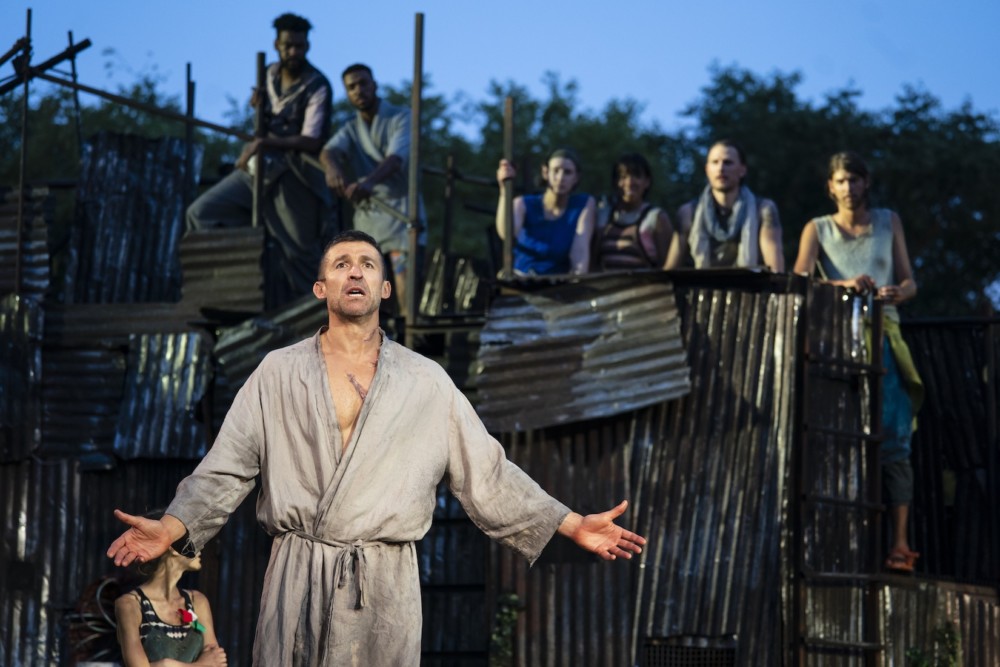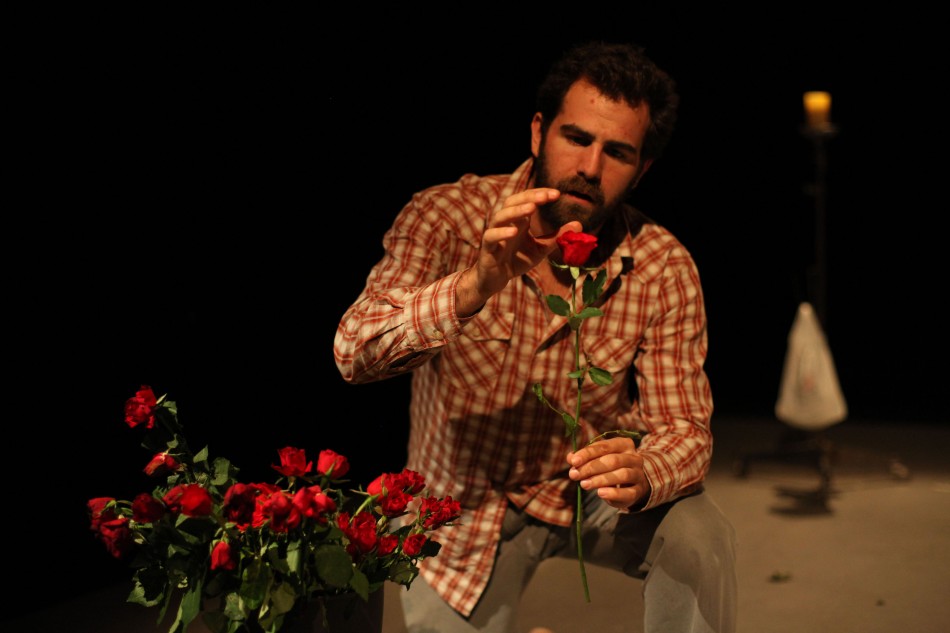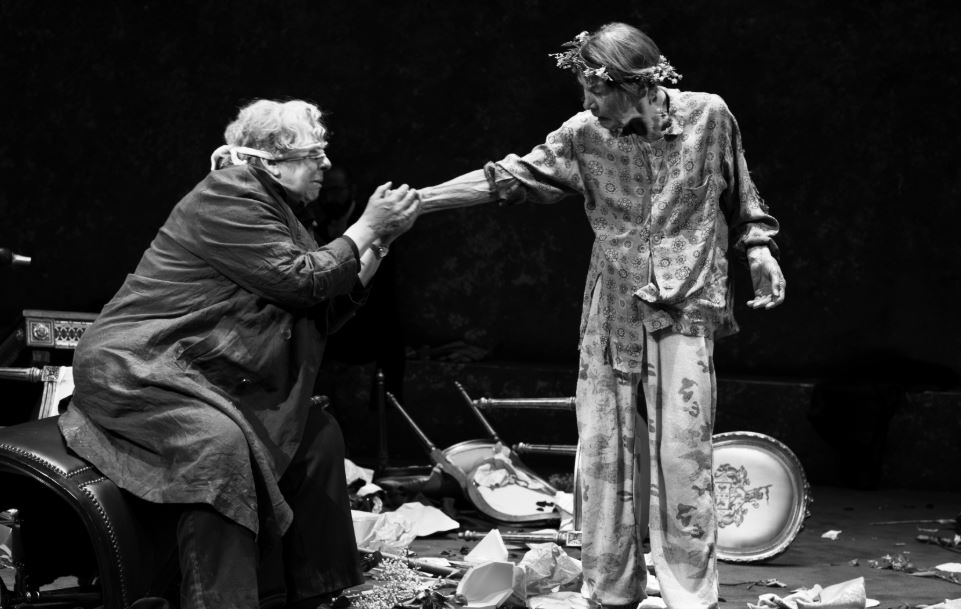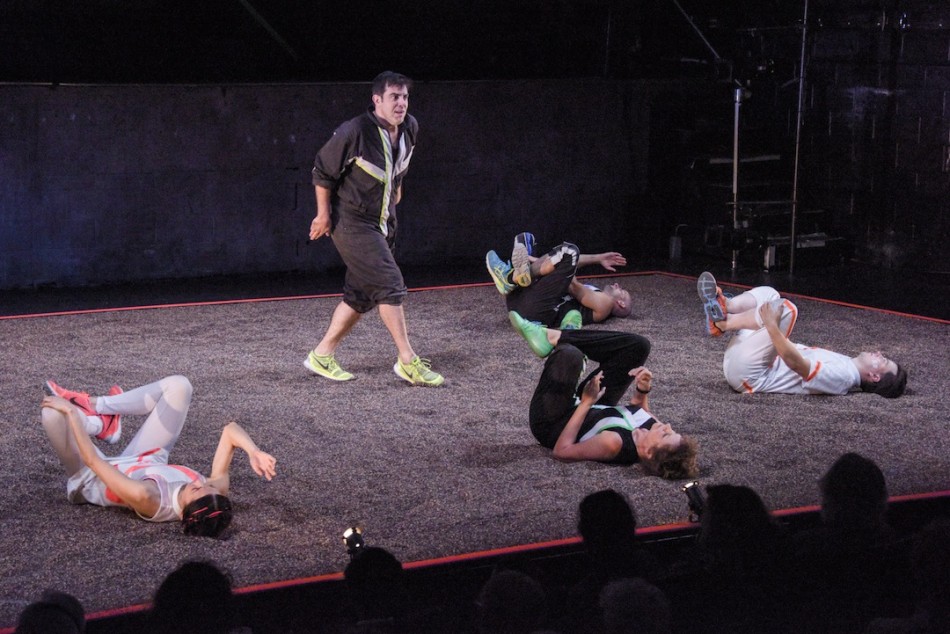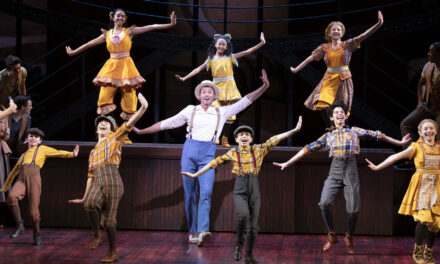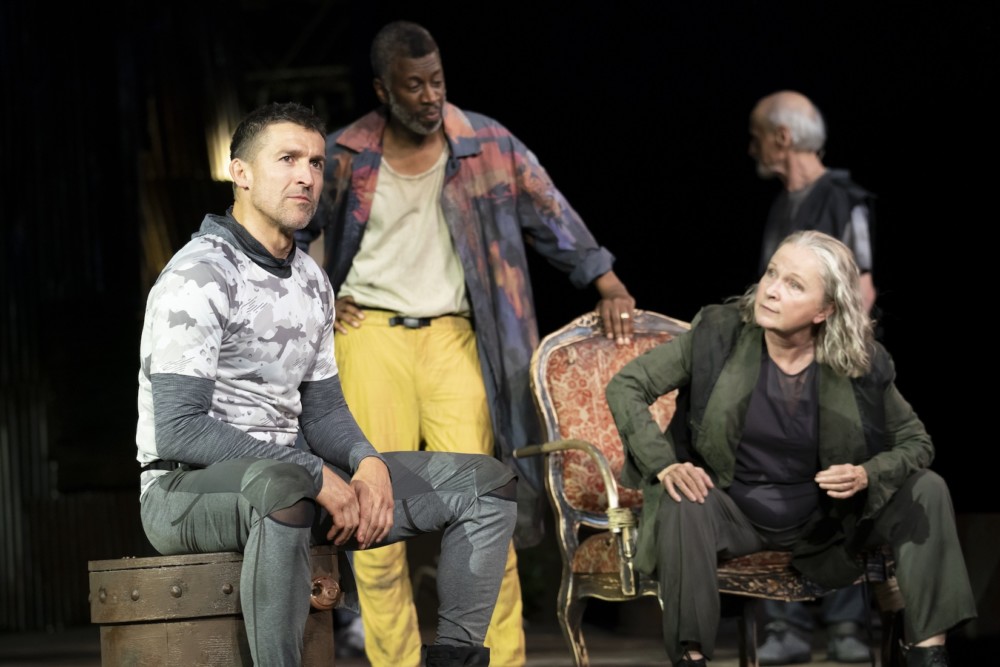
Jonathan Cake. Teagle F. Bougere, Kate Burton
By JK Clarke
Coriolanus is one of many Shakespeare plays that can be played for its uncanny prescience in modern times, though it doesn’t always have to be. Like Julius Caesar, it’s an especially apt play today when our domestic political climate is one of panicky forebodings. In 2017, shortly after Donald Trump was elected president, The Public Theater ran a Shakespeare in the Park at the Delacorte that spoke to the moment, with a Caesar that was quite clearly modeled on the new commander-in-chief. Though most educated viewers understood it was a commentary on the state of democracy, Trump supporters lost their minds, calling for corporate boycotts of Shakespeare in the Park and even rushing the stage mid-performance. Since then the Public has been somewhat less bold. Last year’s Othello could have easily been a statement on race relations, but instead certain inflammatory, racist lines in the play were elided. This summer’s first production, an excellent Much Ado About Nothing, while casually political was nonetheless so charming that it deftly ruffled no feathers. And so it seemed, hopefully, that Coriolanus might have been chosen as the second Shakespeare in the Park of the summer in order to make a statement about the blind stupidity of mob mentality, examples of which we see routinely in daily news feeds. But rather than swing for the fences at this fat fastball over the heart of the plate, the Public bunted.
It’s not to say that this is a particularly bad production of Coriolanus (under Daniel Sullivan’s able direction), because the play is rife with weaknesses to begin with (it’s repetitive, lacks profundity, and works better in a more intimate, enclosed space because of the complex dialog). It’s just that it represents a missed opportunity. Even a November 2016 Red Bull Theater production of Coriolanus (starring an excellent Patrick Page as Meninius, nominated for a Tony this year for Hadestown) capitalized on the drying cement of that year’s corrupt election. And how could comparisons be avoided? Echoes of contemporary politics run roughshod through Coriolanus, like when Caius Martius (who is yet to receive the honorarium “Coriolanus”) returns victorious from battle, only to scorn the starving citizenry for their demands for grain because they have not participated in the battles. In essence he likens their entitlement to food to a sort of socialism, not unlike the way arguments are made for and against demands for healthcare, or housing.
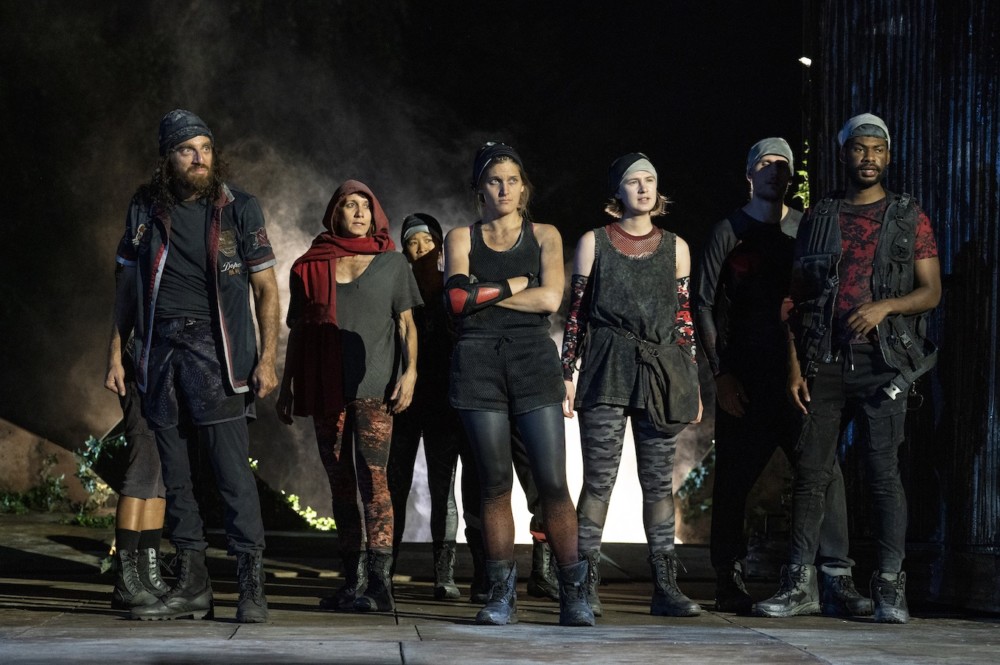

Caius Martius (Jonathan Cake, who for some reason sometimes sounded in this production like the Hannah Barbara character Snagglepuss) displays his tragic flaw early and often. Though he is an heroic soldier he cannot hide his utter disdain for silly tradition and his contempt for the filthy, under-informed masses. When he attempts to get their support to be consul (at his mother’s urging), he makes the mistake of not placating them, and of course they turn on him. The desperate masses have short memories when they are faced with hunger and abject poverty, the lesson seems to be.
What makes Coriolanus perhaps a too complex tragedy is that there are tragic flaws everywhere you look; and everybody loses, including the audience, who really just want a hero. The masses are fickle and greedy, easily manipulated by the power hungry tribunes Sicinius Veletus (Enid Graham) and Junius Brutus (Jonathan Hadary) who are virulently opposed to Coriolanus becoming consul. Coriolanus’s mother, Voluminia (an excellently assertive Kate Burton) is the ultimate helicopter parent, pushing her son to run for consul and accede to the masses’ demands despite his reluctance and disdain. And Coriolanus’s chief supporters, the persuasive Menenius Agrippa (Teagle F. Bougere) and army commander Cominius (Tom Nelis), are too devoted and sycophantic to realize that Coriolanus would make a horrible consul, despite his military might. Absolutely everyone is on the wrong path.
While all these relationships and poor decisions are immediately recognizable among figures in today’s political world, Sullivan chose to set the action in an unrecognizable, yet present day (costumes Kay Vocye) dystopian society that looks like the set of Mad Max or the junkyard home of The Scavengers in “The Walking Dead.” Beowulf Borritt’s set, augmented with dramatic lighting by Japhy Weideman, is imaginative, made of modular chunks layered with corrugated steel. But these elements take away the relatability and relegate it to the world of fantasy, when fantasy is totally unnecessary and, in fact, dulls the impact of the play’s political statements.
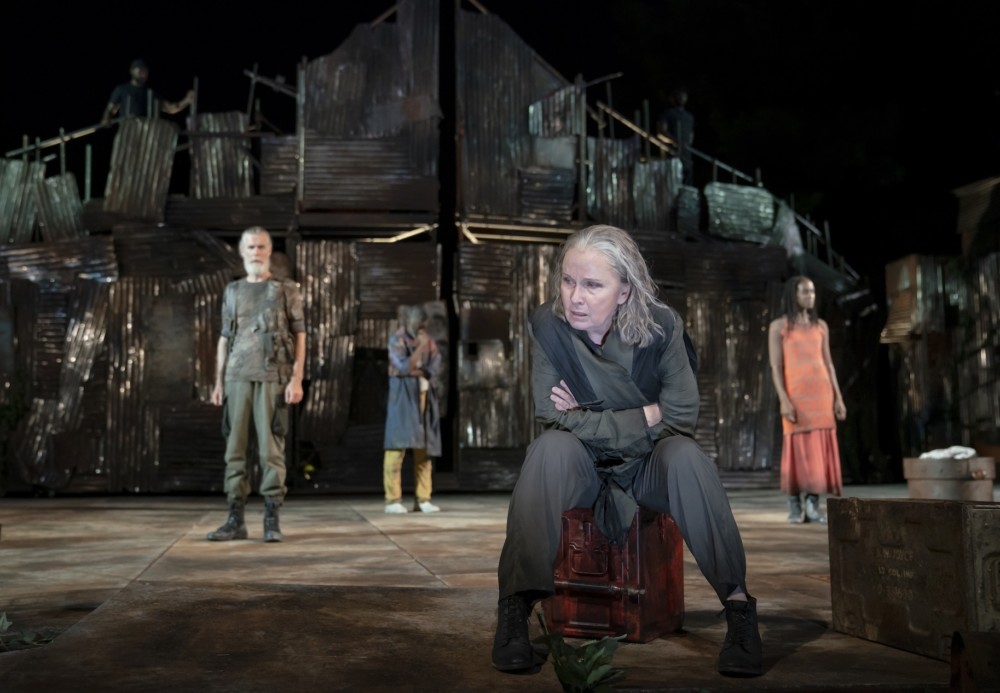

Tom Nelis, Teagle F. Bougere, Kate Burton, Nneka Okafor
While Caius Martius reactions may bring to mind Norman Bates (“Oh mother, mother!/What have you done?”) his actions are more closely related to our president, who excoriates his (very reasonable) critics and befriends our enemies. This is particularly evident when he, on two separate occasions, joins Rome’s sworn foe, the Volcians and their leader Aufidius (a very charming, hipsterized Louis Cacelmi, who does nothing to dissuade the often debated homoerotic relationship between the two leaders) to fight against Rome.
Despite the missed opportunity to make a statement with the play, and despite some technical mishaps (microphone equipment failed several times) and more than a few flubbed lines (more than one would expect from such a cast of top-notch professionals), both of which could easily be chalked up to a “bad night,” this production of Coriolanus nonetheless offers yet another lovely evening of theater at the Delacorte and caps a fine season of Shakespeare in the Park, which really just can’t be beat and always makes us look forward to summers in New York.
Coriolanus. Through August 11 at The Delacorte Theater in Central Park (in the park at Central Park West and 81st Street). Two hours, 45 minutes with one intermission. www.publictheater.org
Photos: Joan Marcus


